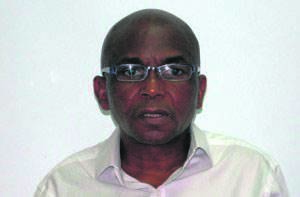
The recent decision by the Supreme Court of Appeal that certain utterances might be hurtful without being hate speech has indeed pushed the envelope when it comes to the interpretation of some of our “progressive” laws as a nascent democracy.
While not welcomed by everyone, the decision is an important step towards fine-tuning some of the laws in our efforts to building a truly democratic society.
Such fine-tuning initiatives are important as we continue to navigate the minefield created by the legacy of centuries of colonialism and apartheid – systems that were inimical to the creation of any such democratic society.
The court found the Promotion of Equality and Prevention of Unfair Discrimination Act (Pepuda) – meant to protect all citizens against discrimination – to be vague and overboard.
It said for an utterance to be regarded as hate speech it must not only be offensive or hurtful but also it should be proved to contain some incitement to causing harm.
Disagreements aside, of importance is how the court has guided or directed the discourse around important issues – such as racism, freedom of speech and hate speech – in any developing society.
To this end, it is important that we should regard the court’s action as a clarion call for all South Africans to engage in a critical discourse about such issues so as to find a common path on how to deal effectively with them – thereby contributing to the quest for a truly democratic country.
Some of us who hold the above position are driven by, for example, how glibly terms such as “black racism” has sneaked into our lexicology with little intellectual interrogation.
As it is, the notion of “black racism” has become so commonplace that, to show how “nonracial” they are, our politicians always profess to being opposed to “both white and black racism”.
Some predicate their argument about the existence of “black racism” on the fact that blacks in the country now have political power.
Unfortunately, the media, as purveyors of information, have fallen into the trap of accepting the existence of black racism.
In an article he wrote for News24 last year, titled The myth of ‘reverse racism’, author and political commentator Max du Preez argued that it was not easy to find “a neat definition of racism”.
He pointed out that every dictionary agrees broadly that “racism has to do with prejudice or discrimination against someone of a different race than yourself, based on the conviction that your own race is superior”.
“The element of perceived superiority is thus essential for an attitude or action to be classified as racist.”
He went further to differentiate between racism itself and intolerance or insults based on race without the element of superiority.
“This is the basis of the argument that blacks cannot be racist against whites: When a black person insults or threatens a white person because they are white, it isn’t because the perpetrator believes the ‘black race’ is better that the ‘white race … it is rather a reaction to white racism, white domination and historical injustices – and sometimes a sense of insecurity or frustration can play a role.”
Interestingly, Du Preez dismissed the argument that black people cannot be racist against whites because they do not have the power.
According to him, this could not apply in the now democratic South Africa.
In another article, titled Reverse racism is a myth, the Alberta Civil Liberties Research Centre, based at the University of Calgary in Canada, differentiated between racial prejudice and racism.
The centre’s argument was that, while racial prejudice could be directed at white people (for example, white people can’t dance), that could not be regarded as racism because of “the systemic relationship of power”.
“When backed with power, prejudice results in acts of discrimination and oppression against groups or individuals. In Canada white people hold this cultural power due to Eurocentric modes of thinking, rooted in colonialism, that continue to reproduce and privilege whites.”
The centre differentiated between racism and racial prejudice against white people, pointing out that although such prejudice might hurt the white people individually or personally “they do not have the power or authority to affect white people’s social/economic/political location and privileges”.
As it is, the centre’s description of what prevails in Canada does apply in the case of South Africa where, despite blacks having political power and being the majority, South Africa remains Eurocentric and does reproduce white privilege.
Our experience as black people who have suffered and continue to suffer under the yoke of racism has been that those who espouse the existence of black racism are people who want to protect white privilege by playing victims.
There is indeed a need for intervention in this regard.
So, just as the court has given the members of Parliament 18 months to fine-tune the Pepuda, it is about time that we as South Africans knuckled down and dispassionately deactivate some of the land mines planted by colonialism and apartheid.
Lekota is an independent media practitioner
 | ||||||||||||||||||||||||||
Get in touchCity Press | ||||||||||||||||||||||||||
| ||||||||||||||||||||||||||
| Rise above the clutter | Choose your news | City Press in your inbox | ||||||||||||||||||||||||||
| City Press is an agenda-setting South African news brand that publishes across platforms. Its flagship print edition is distributed on a Sunday. |




 Publications
Publications
 Partners
Partners








